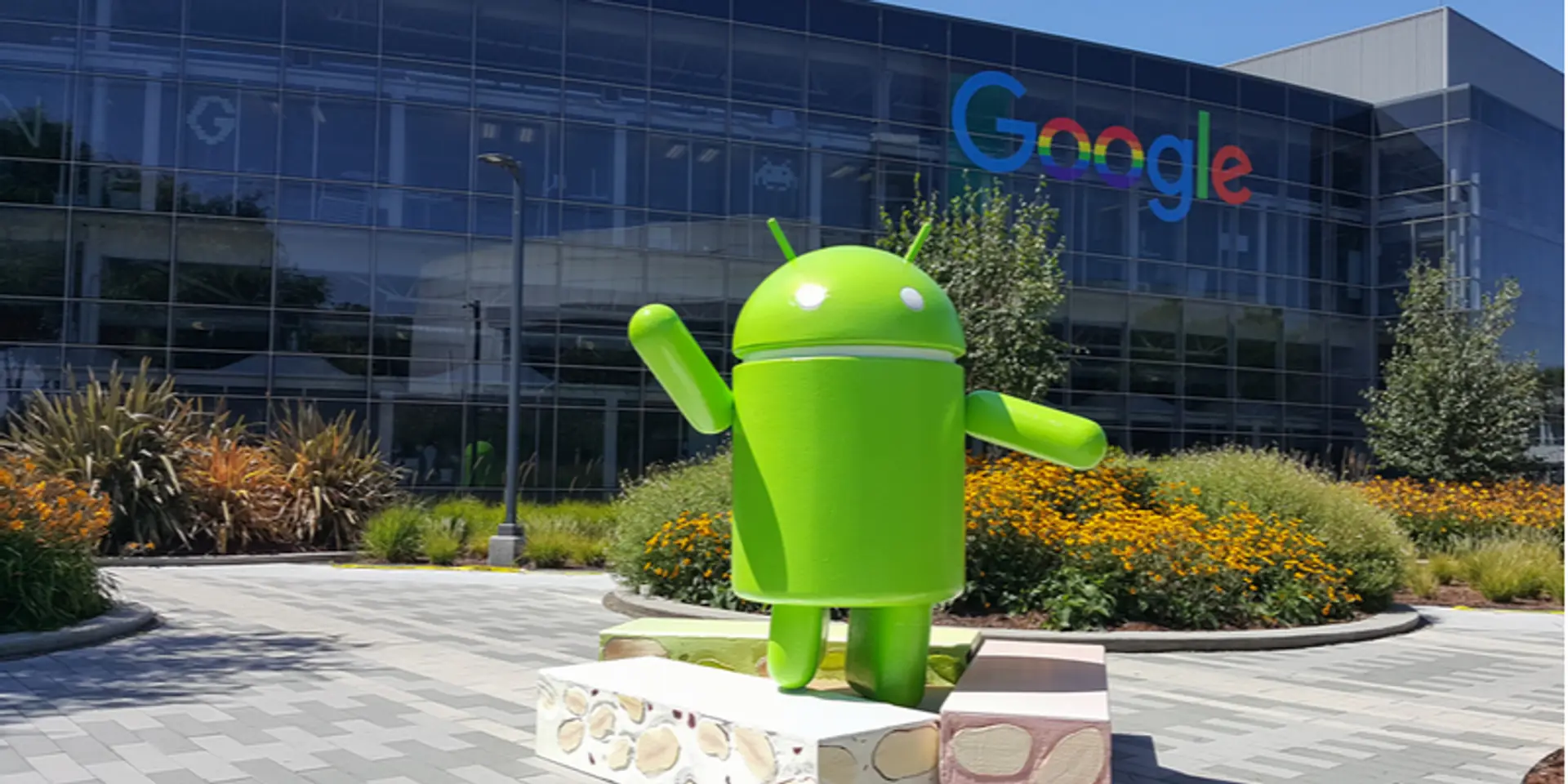India’s startup-tech ecosystem term Google Play’s new payment policy, other rules ‘Digital (Colonisation of) India’
Indian startup founders and app developers are calling for an alternative to Google Play — India’s own Bharat AppStore, which is one of YourStory's 11 recommendations for enabling an AppNirbhar Bharat.
Ever since Google’s recent announcement on enforcement of new Google Play Store's billing policies — where app developers will be required to use Play’s built-in payment system to sell digital services from January 20, 2020, onward (with up to one year grace period) — there has been a steady stream of reactions from app developers, startups, and the tech community across the world.
Here in India, where Google commands the majority of the country’s smartphone market share with Android, app companies, tech majors, and Indian startups have decried Google’s move, terming it ‘monopolistic behaviour’ and a ‘Digital (colonisation of) India,’ and calling for the creation of a Bharat AppStore, India's own homegrown alternative to Google Play.
They emphasise that the tech giant cannot mandate Indian app developers to compulsorily use its billing system, which cuts 30 percent commission out of the payments made by users on in-app purchases.

The Internet and Mobile Association of India (IAMAI) has expressed major concerns over the announcement, saying Google cannot act arbitrarily and enforce its rules and regulations that are contrary to our country's laws, just because the search giant owns the gate and the gateway to the digital ecosystem of India.
IAMAI also drew parallels with how telcos used to cut up to 70 percent revenue share from VAS companies on the pretext of discovery, marketing, and collection. According to IAMAI, more than 90 percent of internet users in India use Android phones, giving Google control over many layers between customers and their service providers.
“For many founders of Indian startups, this brings back fears of the not-so-old, deeply problematic revenue-share model between VAS service providers (mainly digital goods) and telecom operators,” IAMAI said.

Paytm, Zomato, and Swiggy have all received notices from Google on alleged Play Store guideline violations
The association, whose members include Times Internet, JIO, and Amazon, said that the Indian Founders’ community is “...on fire at the announcement of the policy” and added that the primary reason for this move appears to be that the tech giant wants to dominate the payment aggregation market in India and dictate the market in future.
“As a payment aggregator, currently unlicensed but soon to be licensed in India, Google Billing System can choose which payment instruments it would work with and which ones it would not,” it added. The association also pointed out that the new draft RBI guidelines on payment aggregators, too, allows for that freedom.
IAMAI said it will call a meeting with its founder members (Google is also a part of the association) to discuss the way forward.
In a statement shared with Yourstory, Google said that it has been deeply vested in facilitating Indian startup ecosystem growth with numerous outreach programmes that offer mentorship and guidance to a wide spectrum of developers.
Stating that it remains committed to supporting Indian developers to succeed globally, Google said consumer spend on apps and games created by Indian developers has doubled year to date, when compared to the same period last year.
Also, Indian developers saw growth of more than 80 percent in consumer spend from users outside of India year-to-date, when compared to the same period last year, it added.
"Choice is central to Android -- the Google Play billing policy only applies to developers that implement in-app purchases of digital goods. Developers are welcome to implement digital purchases outside of Google Play Billing and continue to reach global audiences through Play Store, without any service fee," Google said.
Need for Bharat Appstore
On Friday, October 1, YourStory, in its AppNirbhar Bharat report, also made 11 recommendations for enabling a robust app ecosystem, based on our conversations with Indian startups and app developers.
YourStory's recommendations include the need to create a Bharat Appstore, a mobile phone software ecosystem that serves as an alternative to Android and iOS, and an equity-based, regulated crowdfunding infrastructure in India.

At TechSparks 2020, the 11th edition of YourStory’s flagship startup-tech conference which is scheduled for 26-30 Oct 2020, app developers, policymakers, investors, and startups will come together to deliberate on the recommendations and what it will take for India to have an app ecosystem that is truly Aatmanirbhar.
Many Indian startup founders, app developers, and product managers have also been voicing the need for India’s own Bharat AppStore.
CEO and Co-founder Harshil Mathur believes India needs its own homegrown local app store.
"India needs a local app store long term; else, 30 percent tax will eat up most businesses," Harshil said.
Rakesh Deshmukh, Co-founder and CEO of , tweeted, “Does India need its own appstore? #IndiaKaAppStore #digitalmonopolies #IndusAppBazaar.”

Kunal Shah, Founder and CEO, Cred
Others like Kunal Shah, Founder of , have pointed to the likely impact of this move on dating and education apps.
He tweeted, "Like gaming, maybe dating and education apps may soon get off app stores and get users to 'side load' in hopes to save costs."
Paytm, Zomato, Swiggy on Google’s unfair behaviour
Earlier on September 18, the app was blocked from Play store for a few hours for violating Google's policy on sports betting activities.
The app was restored in Play Store a few hours later after the Softbank-backed Paytm removed the 'cashback' feature linked to a game on the app.
Paytm — in its blog — wrote that it was "arm-twisted" by the tech major to comply with “its biased Play Store policies that are meant to artificially create Google's market dominance".
Most recently, food delivery apps and received notices from Google for their in-app gamification features that allegedly violate the tech giant's Play Store guidelines, which Zomato has called "unfair".

As of now, apps requiring payment for physical goods, like ride-sharing, food delivery, apparel or content subscription via the developer's own website, will not require a Play billing system.
But any app that offers in-app purchase of digital goods like unlocking additional features or buying tokens to power up a mobile game or paying for songs, will be required to use Google Play's billing system.
Vishwas Patel, Founder, and Chairman of Payments Council Of India, advised that Google should not reject Indian apps who are using RBI-recognised payment aggregators and payment gateways.
He also asserted that Google should not exercise its dominant position and instead allow a level-playing field for everyone in the ecosystem.
Digital monopolies
Other stakeholders in the Indian startup ecosystem also expressed serious concerns about how this could impact Indian startups and app developers’ long-term growth prospects, with many calling this Google’s assertion of its monopoly on India’s digital economy.
Vaibhav Vasa, Director of Indian SaaS business management mobile app Biz Analyst, said Google’s latest clarification — that this policy currently impacts three percent of the apps on the Play Store — will mean ‘a big negative impact’ on India.
With approximately 131,600 apps from Indian publishers itself, this will certainly lead to a trickle-down effect in the market, Biz Analyst’s Vaibhav said.
“The reason being SAAS companies in India have a less margin on the app pricing, so if they have to pay an additional 30 percent to Google then this increase will directly impact the end customers, i.e., small and medium businesses (SMBs),” Vaibhav said.
As most SMBs are still navigating through the setbacks from the pandemic, turning towards digitisation, which was a viable solution, has now come under the scanner given their budget constraints on account of the new rules.
“The fact is, a small decision made by the big players in the tech world can cause serious ripple effects on the entire startup and tech industry,” Vaibhav said.
Arvind Gupta, Founder Member of iSPiRT, agreed.
He summed it up more simply, tweeting, "30 percent GateKeeping fees: Startups and consumers have very little choice. #DigitalMonopolies."
Edited by Tenzin Pema








